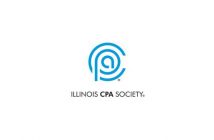Study shows employees improved money management skills and show an increased urgency in retirement planning but still have a long road ahead with retirement preparedness at record lows.
El Segundo, CA-Financial Finesse, the leading provider of unbiased workplace financial education in the U.S., has released today its first quarter 2011 research report on employee financial issues.
In a trend seen since the first quarter of 2010, employees are continuing to take charge of their own financial recovery from the 2008 recession and are showing they understand the importance of planning for their future.
Employees are also focusing on strategies to reduce debt and build their savings. There was a drop in long-term planning calls to Financial Finesse’s helpline, but calls about short-term issues were more proactive in nature, with a focus on budgeting, establishing an emergency fund, and paying off debt to free up cash flow. There were fewer calls about financial hardship issues, bankruptcy, eviction, and other emergency issues. In addition, those who did call about retirement were focused on saving and investing for retirement rather than taking loans and hardship withdrawals from their retirement plan.
“We first identified this trend in the middle of the recession, with employees developing better financial habits out of necessity. The good news is that it is continuing without the usual complacency that we typically see in an economic recovery,” says Liz Davidson, CEO and Founder of Financial Finesse. “Every quarter that employees continue this momentum, the less likely they are to backslide and more likely that this is a lasting mind shift in how they manage their finances.”
Employees made significant improvements in major areas of money management in Q1 2011, a continuation of an ongoing trend that has persisted for the last several quarters:
But despite good strides forward, Davidson warns that employees still have a long way to go when it comes to securing their retirement. According to the study, only 15 percent of employees are confident they are on track to meet their retirement goals—a drop from 18 percent in Q4 2010—which is among the lowest retirement confidence levels Financial Finesse has ever recorded.
The report also identified a big area of concern in employees’ investing knowledge, showing that only 34 percent of employees are confident their investments are allocated appropriately for their time horizon and risk tolerance, even though 77 percent of employees indicated they understood the basics of stocks, bonds and mutual funds.
This makes it even more evident that there is a huge gap between where employees are with their retirement savings and where they need to be in order to avoid an economic crisis.
The good news, Davidson says, is that employees, employers, and industry leaders, all recognize the problem and are taking action to solve it. Across the board, employees of virtually all income levels and all age groups (except for those under $60,000 and under age 30) reported that retirement was their top priority, and the number of employees participating in their company-sponsored retirement plan has increased from 83 percent in 2010 to 91 percent in Q1 2011, according to Financial Finesse’s study.
In addition, more employers are offering retirement education as an ongoing employee benefit and those employees who commit to ongoing retirement education are saving enough to retire comfortably. A recent behavioral change study Financial Finesse conducted found that employees saved on average 11 percent of their income—over twice the national average—in their 401(k) plans when they had five or more interactions with retirement education programs.
These are all promising signs, but Davidson and other experts caution that employees’ recent progress is just a start. Employees must continue this progress, and accelerate it, to be able to close the gap between what they have now and what they need to retire, and that’s not easy to do in what is still a tough economy.
As a result, David Wray, President of the Profit Sharing / 401(k) Council of America, the nation’s foremost authority on company-sponsored retirement plans, is making retirement education a bigger priority in PSCA’s research and advocacy efforts and at its conferences and annual Signature Awards. According to Wray, the problem merits much more focus on the part of employees, employers, and industry leaders. Wray notes that “many employees are still not saving enough and companies are implementing more retirement planning and education programs. Over 50 percent have recently increased their employee education efforts according to our most recent survey of plan sponsors. Every employer needs to have a robust program in place to provide the ongoing retirement education that employees need so they will save sufficiently and invest appropriately and be effectively prepared for retirement.”




